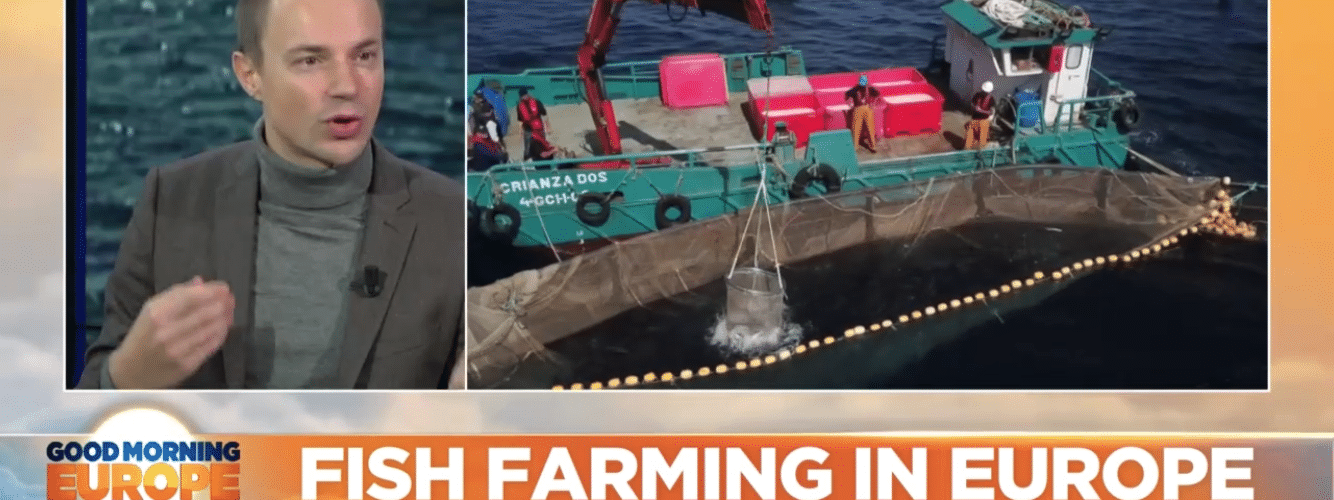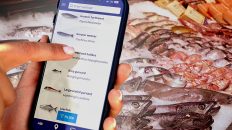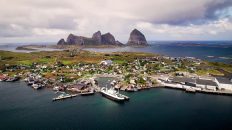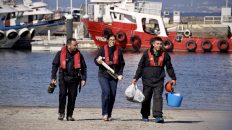Europe’s aquaculture industry is expecting to get a boost from new, environmentally friendly production methods that can make farmed fish a more sustainable alternative to imports. Euronews’ science and nature correspondent Denis Loctier reports.
Marine fish farms are notorious polluters of coastal waters: their cages are often placed close to land to shelter them from storms. But this sea bass farm in Gran Canaria is removed 2 kilometres away from the shore — that’s unusually far.
The strong Atlantic currents keep the water clean — meaning no coastal pollution whatsoever. The risk of storms is higher, but the farm is safe thanks to its innovative design developed by this Spanish company, Aquanaria.
Pedro Sánchez, Commercial Director, Aquanaria: “There is a lot of very sophisticated mooring systems, grid systems, everything is connected — so we can really make sure that no matter how big the storm is, we’re still in place.“
Reducing pollution helps the industry cope with strict EU environmental regulations. So far, Europe imports 2/3 of the seafood it consumes. Nature-friendly fish farms can provide a sustainable alternative — not just in Europe, but at the global scale, as in just three decades, our growing population will need to produce 70% more food.
Denis Loctier, Euronews: “Aquaculture could become vital in ensuring there is enough food for everyone. We are already using our marine resources to the limit, and global captures have been stagnating since the 1980s. In contrast, aquaculture production has been steadily rising for years — and fish farms like this could help to satisfy the demands of our growing population.”
Land-based aquaculture is reducing its environmental impact as well. Here in the Netherlands, the Kingfish Zeeland farm is running clean sea water through a state-of-the-art recirculation system, using renewable energy, organic fish feed and zero antibiotics. The capacity is 600 tons of yellowtail kingfish a year.
Ohad Maiman, CEO, Kingfish Zeeland: “We replace 40 percent of the water in the system daily with fresh seawater, and we maintain the optimal conditions 24/7. That in turn benefits the fish, creates a positive living environment, and allows us to grow them without medications or any kind of additional interference. Essentially there’s a lot of investment in technology put in to producing fish as naturally as possible.”
The company is expanding in The Netherlands and abroad, supplying restaurants with environmentally sustainable fish from local farms.





